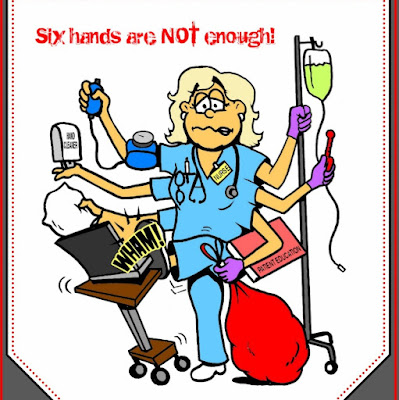What Is IBS and Why You Should Know About IBS
A couple of weeks ago, I went through a
crazy period of gastrointestinal distress, with diarrhoea lasting about
ten days. Fortunately, it has subsided now, but this experience has made me think back on how many
people might be living with undiagnosed Irritable Bowel Syndrome (IBS). I want to use this as an opportunity to share my story and spread awareness about IBS, its
symptoms, and steps to manage it.
My Symptoms and What Steps I took to Resolve Them
It started abruptly one evening just after work (I had consumed some cookies and chocolates a colleague had brought as a farewell meal) with frequent and urgent
trips to the bathroom, accompanied by abdominal cramping. Initially, I thought
it might be a case of food poisoning or a reaction to something I ate. However,
as the days passed, I began considering other possibilities like lactose
intolerance or even IBS.
Here’s what I did to manage my symptoms and eventually find relief:
1.
Hydration:
With diarrhea, staying hydrated was my top priority. I drank plenty of water
and oral rehydration solutions to prevent dehydration.
2.
Dietary
Adjustments: I switched to a bland diet, avoiding dairy, fatty foods, and
anything too spicy or fibrous. Foods like bananas, rice, applesauce, and toast
(the BRAT diet) became my staples.
3.
Monitoring
Foods: I kept a food diary to track everything I ate and noted any foods that
seemed to exacerbate my symptoms.
4.
Rest: I
gave my body plenty of rest, understanding that stress and fatigue could worsen
my symptoms.
5.
Consultation:
I reached out to my doctor to discuss my symptoms. Though not yet confirmed as
IBS, the pattern of symptoms led to a discussion about it.
Understanding IBS
Irritable Bowel Syndrome is a common yet often
misunderstood condition that affects the large intestine. Its hallmark symptoms
include abdominal pain, bloating, and changes in bowel habits such as diarrhea,
constipation, or both. Unlike other digestive conditions, IBS doesn't cause
changes in bowel tissue or increase cancer risk, but it can significantly
impact one’s quality of life.
Why Awareness of IBS Matters
Many people might dismiss their digestive
troubles as occasional food reactions or stress-related issues, but persistent
symptoms should not be ignored. Here’s why awareness is crucial:
1.
Proper
Diagnosis: Understanding IBS can lead individuals to seek medical advice sooner
rather than later, helping to rule out other serious conditions and manage
symptoms effectively.
2.
Management:
With the right diagnosis, people can adopt effective management strategies,
including dietary changes, medications, and lifestyle adjustments.
3.
Quality of
Life: Being aware of IBS and its triggers can drastically improve the quality
of life for sufferers by reducing the frequency and severity of symptoms.
Steps to
Take If You Suspect IBS
1.
Track
Symptoms: Keep a detailed record of your symptoms, noting when they occur,
their severity, and any potential triggers.
2.
Consult a
Doctor: Seek professional medical advice to discuss your symptoms and possible
diagnostic tests to rule out other conditions.
3.
Dietary
Changes: Consider trying a low-FODMAP diet, which has been shown to help many
people with IBS by reducing certain carbohydrates that can trigger symptoms.
4.
Stress
Management: Since stress can exacerbate IBS, incorporate stress-relief
techniques such as mindfulness, meditation, or regular physical activity into
your routine.
5.
Community
Support: Join support groups or online communities where you can share
experiences and gain insights from others living with IBS.
My experience highlighted the importance of not
ignoring persistent digestive issues. While my symptoms have improved, I am
more aware of my body's signals and the potential of IBS. If you or someone you
know is experiencing similar symptoms, take action. Awareness and proactive
management can make a significant difference.
Let's continue to educate ourselves and others
about IBS and support those who may be silently suffering. Your gut health is
crucial to your overall well-being, so don't hesitate to seek help and make
necessary changes for a healthier life.
Stay informed, stay healthy!






No comments:
Comments for this blog are held for moderation before they are published to the blog.
Note: Only a member of this blog may post a comment.